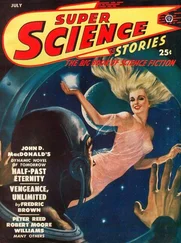“In two hours, monsieur. Eleven-thirty. Rather late, possibly.”
“If I were to come for you at that time, Duval, would you consent to guide us to some interesting places?” As Charlebois hesitated, Dalquist added, “I will pay you well.”
“If Monsieur will come to the top of these stairs, to the first room on the left in the outside hallway, anytime after eleven-thirty, I will be ready.” At that moment a sudden gust of wind blew out one of the candles. Charlebois hastened around the table to relight it. He stumbled on the rug and had to place his hand against Dalquist’s chest to keep from falling upon him. He backed off and apologized profusely. There was something in his eyes that vaguely alarmed Dalquist. He relighted the candle as Jerry Ellis came back into the room.
They lingered a half hour over the brandy, and at last Jan paid the check, leaving a liberal tip for Charlebois. They walked down the stairs and out onto the street, with Dalquist fighting against the spell of the night, the warmth of her laughter, the faint, clean scent of her hair. And that odd look in Charlebois’s eyes troubled him.
They went to three different places, listening to the music, the poor present-day ghost of the New Orleans jazz heritage. Dalquist arranged it so that they entered the third place a little after eleven. He also made certain that it was only a few hundred feet from the Ancient Door.
They sat, side by side, on a low bench along one wall of a large room. With practiced stealth, he unclasped her purse and dropped his silver lighter into it, forcing it down into a corner. At twenty-five after eleven he began to slap at his pockets and look worried.
Jerry said, “What’s the matter, Jan?”
“My lighter. Seems to be gone. I bet you I left it at that last place. If I go back right now, I may stand a chance of getting it back. You don’t mind waiting for me, do you? It’s only two blocks. If it isn’t there, I’ll try the first place. Just sit tight and order me a drink.”
The hunter acquires the habit of melting into the terrain, of blending himself with the brush and the movement of his passage is as unnoticeable as the stirring of a light breeze. His every step is sure, his movements deft. He is gone before you become conscious of his presence.
So it was with Dalquist. One couple sat in a far corner of the dining room of the Ancient Door. No waiter was about. He crossed the floor in his dull gray suit with his noiseless tread. They didn’t look up. He went up the stairs and knocked at the first door on the left of the passageway.
“Duval?” he called.
“Come in, monsieur.”
Dalquist walked into the room. Charlebois stood on the far side of the room. It was a small room, obviously used as a dressing room by the help. A row of hooks held wrinkled uniforms. Dalquist’s automatic was equipped with what is called a one-shot silencer, a small cartridge of metal containing compressed sponge rubber. It was screwed onto the threaded end of the barrel. Such a device is only effective for the first shot, muting it to about the decibel rating of a loud cough.
With the sixth sense of the hunter, Dalquist, as his hand flashed up toward the shoulder, felt the presence of someone else close behind him. He tried to dodge and turn, but as his fingertips touched the rough grip of the automatic, a stunning blow hit him just under the ear, dropping him heavily to his hands and knees. He shook his head and tried to fight away as he felt a hand slipping under his coat, snatching away the automatic. In a fog of semi-consciousness, he cursed himself for not entering with the weapon in his hand.
He was kicked heavily in the side and he fell over onto the floor, gasping for breath. The room swam around him as he sat up, narrowing his eyes to hasten focus. The door was kicked shut. A stranger, a bandy-legged man with a potbelly, small eyes and cropped black hair, stood grinning down at Dalquist, covering him with his own weapon.
Charlebois stood slightly behind him, also smiling, a slim knife in his right hand. He held it in the traditional knife fighter’s manner, the end of the handle against the heel of his hand, his thumb resting lightly on the cutting edge.
Charlebois said, “Crawl slowly over to that chair, monsieur, and sit. Cross your arms tightly and keep them crossed. René, lock the door.”
Dalquist did as he was told. He had learned, in the most difficult conceivable manner, that it is best not to speak when at a disadvantage.
After Dalquist was in the chair and René had locked the door, Charlebois said, “René, this is the cow I spoke about. An ex-member of the Gestapo. A man who betrayed hundreds of the brave patriots of France. It is up to us to kill him in the name of France.”
René’s stupid face twisted with hate. He said thickly, “My brother was one of those betrayed by such a man!”
Dalquist weighed the chances. He said quickly, “René, you are listening to one who is a traitor himself. Look at my hands. Would the Gestapo torture one of their own? Would any group other than the Gestapo do such a thing?”
He extended his hands, ignoring the hoarse exclamation of Charlebois. As René stared at the mutilated fingers, Dalquist said quickly, “And the man behind you is an infamous one named Jean Charlebois, who betrayed the Maquis. I was hired by the patriots of France to track him down.”
As René, confused, turned toward Charlebois, the traitor said, “Do not believe this pig, René! He is lying—”
“I want to know why this man you call a member of the Gestapo should come here for you, Duval,” René said heavily.
Dalquist felt his heart leap as he read the indecision in René’s face. The small eyes looked swiftly toward Dalquist’s hands and then into Dalquist’s eyes.
There was a sudden loud banging at the door. Charlebois hissed, “Shoot him quickly, fool!”
Wheeling ponderously, René said, “Maybe it is you that I should—”
With a grunting curse, Jean Charlebois took a quick step toward René and drove the ready knife into the man’s body. René staggered with the force of the blow and the gun hand sagged. As he tried to lift the gun, Charlebois chopped down with the edge of his hand on René’s wrist, snatching up the gun as it fell to the floor.
René did not fall. He hugged his belly and moaned hoarsely. His eyes were shut with the pain in his body. The flat metal handle of the knife glinted, protruding from between his hands. Dalquist sank back into the chair under the threat of the muzzle of his own gun, pointed at him once more.
With another curse, Charlebois snatched the handle of the knife and yanked it out of René’s middle. René’s life seemed to flow out with the blood that made a widening splotch on his clothes. He dropped to his knees, chin on chest, and then went over onto his face with a damp noise in his throat that sickened Dalquist.
The pounding at the door continued. Charlebois called out, in accented English, “One moment, please.” The pounding ceased.
Charlebois said quickly, “Monsieur, you are of a stupidity most amazing. True, you were clever to find me, but before I left Mexico City, I told Pepita that she should unseal each letter from me with great care. I told her that she would find, stuck under the flap, a short single bit of my hair. If it was missing, she should tell me by telegraph immediately. It was missing on the last letter. The letter had been unsealed and read. Thus I knew someone was coming for me.
“I have used great care. You are the first one to have paid any attention to me. I saw your hands, monsieur. I am familiar with the work of the Gestapo. I stumbled against you, monsieur, and felt the bulk of your gun under my palm. You asked me to go out into the night with you, monsieur.
Читать дальше

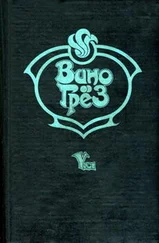
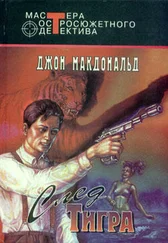
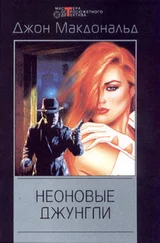

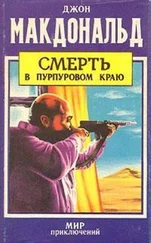



![Джон Макдональд - Wine of the Dreamers [= Planet of the Dreamers]](/books/430039/dzhon-makdonald-wine-of-the-dreamers-planet-of-thumb.webp)

